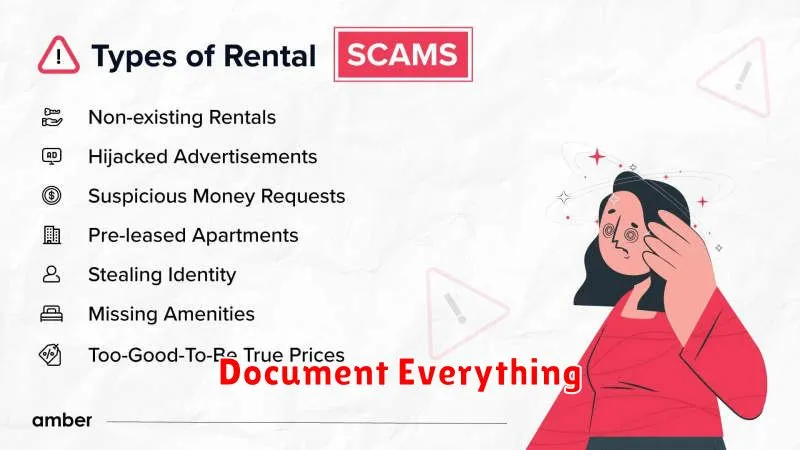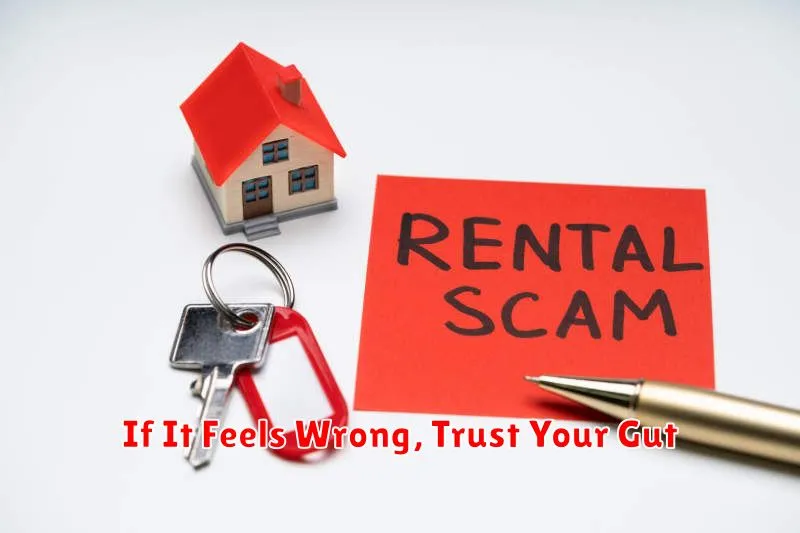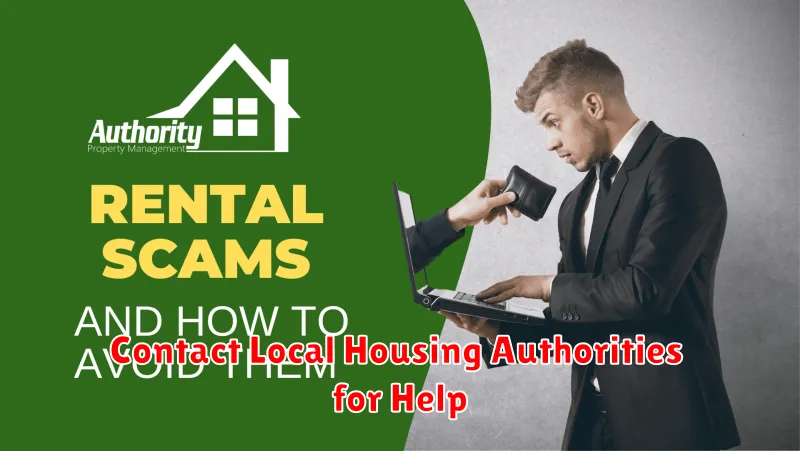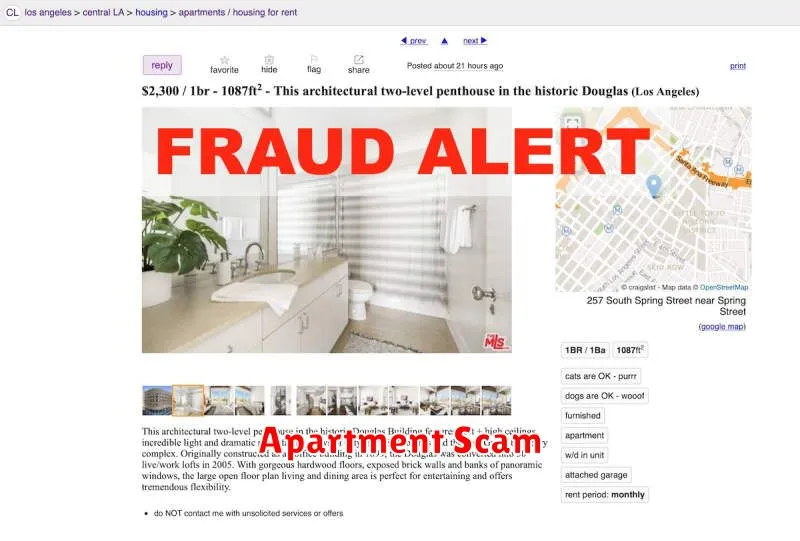Finding a new place to live can be exciting, but it can also be stressful, especially if you’re navigating the world of apartment rentals. With so many options available, it can be easy to fall prey to scams, costing you money and leaving you without a place to stay. But don’t worry! This article will equip you with the knowledge to protect yourself from common apartment rental scams. We’ll dive into the red flags to watch out for and provide you with practical tips on how to avoid becoming a victim. Let’s ensure your next apartment search is safe, secure, and stress-free!
Verify the Landlord’s Identity
One of the most common apartment rental scams involves fake landlords. These scammers create fake listings and pose as landlords to trick unsuspecting renters into paying deposits or rent. To protect yourself from this scam, it is crucial to verify the landlord’s identity.
Before you sign any lease or hand over any money, ask the landlord for identification. You should ask for a driver’s license, passport, or other government-issued ID. This will allow you to confirm the landlord’s name and address. You can also ask the landlord for a copy of their rental license if the state or city requires it. If the landlord is hesitant to provide these documents or gives you excuses for not doing so, it could be a red flag.
If possible, you should also try to verify the landlord’s identity through other means. You can check public records online to see if the landlord’s name and address match up. You can also contact the local landlord association or the property management company to confirm the landlord’s identity.
Beware of Too-Good-to-Be-True Deals
One of the biggest red flags when searching for an apartment is a deal that seems too good to be true. If you find a rental with an extremely low price, especially compared to similar units in the same area, be wary. This could be a sign of a scam.
Scammers may use these low prices to entice you into giving them personal information or sending a deposit before seeing the apartment in person. They may even create fake listings with photos of other apartments to make their scam seem legitimate.
Always be cautious when you encounter deals that seem too good to be true. It’s better to err on the side of caution and research the landlord and property thoroughly before proceeding. A slightly higher price might save you from a lot of trouble in the long run.
See the Apartment in Person
One of the best ways to avoid apartment rental scams is to see the apartment in person before you sign any lease agreements. This allows you to verify that the apartment exists and is in the condition that the landlord described. If a landlord is hesitant to let you see the apartment, it could be a red flag.
When you’re viewing the apartment, pay attention to the following details:
- The condition of the apartment: Is it clean and well-maintained? Are there any major repairs that need to be made?
- The neighborhood: Is the neighborhood safe and quiet? Is it convenient to your workplace, school, or other important places?
- The building amenities: Are the amenities as advertised, such as laundry facilities, parking, or a swimming pool?
If you’re unable to see the apartment in person, ask the landlord for a video tour or to provide you with photos. Be sure to carefully review any photos or videos to ensure the apartment is as advertised.
Don’t Pay Before Signing a Lease
One of the most common rental scams is for someone to ask for money before you sign a lease. This is a huge red flag, and you should never do it. A reputable landlord or property manager will never ask for money before you sign a lease agreement. They may require a security deposit or first month’s rent, but this should be paid after you sign the lease.
Here’s why you should never pay before signing a lease:
- You have no legal protection if something goes wrong. If you pay money before signing a lease, you have no legal protection if the landlord decides to back out of the deal or if the apartment isn’t what you expected.
- You could be scammed. There are many scammers who will take your money and then disappear, leaving you with nothing.
If you are asked to pay money before signing a lease, walk away. It is not worth the risk. There are plenty of legitimate rental properties available, and you should not settle for anything less. Always make sure you have a signed lease agreement in hand before you pay any money.
Research the Average Rent in the Area
Before you even start looking at apartments, it’s important to know what the average rent is in the area you’re interested in. This will help you avoid being scammed by landlords who try to charge you more than what the market rate is. There are a number of online resources that can help you research the average rent, including:
- Apartmentfinder.com
- Zillow
- Trulia
Once you have a good idea of what the average rent is, you can start comparing different apartments to see if they’re priced fairly. If an apartment is significantly more expensive than the average, it’s a red flag that the landlord may be trying to scam you. When you’re researching the average rent for the area, remember to keep in mind the size of the apartment, its location, and the amenities included. Some areas may have higher average rent rates, while apartments in a good location or with high-end features may also cost more.
Be Cautious of Requests for Wired Money
One common apartment rental scam involves requests for wired money, often through services like Western Union or MoneyGram. Legitimate landlords rarely, if ever, require you to wire funds. They prefer secure methods like cashier’s checks or money orders, which are traceable and provide greater security.
If a landlord asks for wired money, it’s a red flag. Wiring money is like sending cash – it’s irreversible and untraceable, making it easy for scammers to disappear with your funds. Never wire money to someone you haven’t met in person or whose identity you haven’t thoroughly verified.
Remember, if it sounds too good to be true, it probably is. Be cautious of deals that seem exceptionally cheap or involve a rushed timeline. Always trust your gut and research the landlord or property before committing to any financial transactions.
Check for Online Reviews and Testimonials
One of the best ways to gauge the legitimacy of a rental property and the landlord is to read online reviews and testimonials. Many websites, such as Google Reviews, Yelp, and ApartmentRatings, allow tenants to share their experiences. Pay attention to both positive and negative reviews, but particularly focus on recurring themes or complaints. For example, if several reviewers mention issues with maintenance, communication problems, or hidden fees, these could be red flags.
Don’t just look for reviews specifically mentioning the property. Research the landlord or management company as well. Their reputation and handling of previous properties can offer valuable insights. If you find overwhelmingly negative reviews or a lack of reviews entirely, it’s a good idea to proceed with caution.
Review the Lease Thoroughly
Before you sign on the dotted line, make sure you read the lease thoroughly and understand everything it says. Pay close attention to the terms of the lease, including the rent amount, the security deposit, the length of the lease, the pet policy, and the rules about subletting. You should also understand your responsibilities as a tenant, such as paying rent on time and maintaining the apartment.
If you have any questions, don’t hesitate to ask your landlord for clarification. You should understand your rights and responsibilities as a tenant and how to avoid costly penalties.
You should also be aware of any clauses that seem unusual or unfair. For example, some leases may have clauses that allow the landlord to raise the rent without notice, or that make it difficult for you to break the lease early. Be sure to research the landlord’s history and read online reviews to see if they are a reputable landlord. You can use resources such as the Better Business Bureau (BBB) or the National Apartment Association (NAA).
Document Everything

One of the most important things you can do to protect yourself from apartment rental scams is to document everything. Keep records of all communication with the landlord or property manager, including emails, text messages, phone calls, and even social media conversations. Take pictures and videos of the apartment or house you’re interested in, including any potential problems or issues. If you’re signing a lease, make sure you read it carefully and understand all of the terms before you sign it. You should also keep a copy of the lease for your own records.
Documentation can be crucial if you ever need to take legal action against a landlord or property manager. Having a paper trail of all communication and interactions will help you to build a strong case. It can also be helpful in resolving disputes with your landlord or property manager. For example, if you have a problem with the apartment, documentation can help you to prove that you reported the problem to the landlord in a timely manner.
If It Feels Wrong, Trust Your Gut

One of the most important things to remember when renting an apartment is to trust your gut. If something feels off, it probably is. Don’t be afraid to walk away from a deal, even if it seems like a good one.
For example, if you’re talking to a landlord and they seem evasive or unwilling to answer your questions, that’s a red flag. Or, if the apartment itself looks too good to be true, it probably is. There could be hidden problems that the landlord is trying to conceal.
It’s always better to be safe than sorry. If you have any doubts about an apartment or a landlord, don’t hesitate to do your research. Check online reviews, talk to other tenants, and get everything in writing.
Trusting your gut can help you avoid falling victim to apartment rental scams. So, if something feels wrong, don’t ignore it.
Contact Local Housing Authorities for Help

If you’re struggling to find affordable housing or are suspicious of a potential rental scam, don’t hesitate to contact your local housing authority. These organizations are dedicated to assisting individuals and families in securing safe and affordable housing. They can provide valuable resources, guidance, and support. They can also help you identify and avoid potential scams by providing information on legitimate landlords and rental properties.
Local housing authorities can help you with:
- Rental assistance programs: They may offer financial assistance to help you afford your rent.
- Housing counseling: They can provide advice and support on finding a safe and affordable rental unit.
- Information on landlord-tenant rights: They can help you understand your rights as a renter.
- Reporting scams: They can assist you in reporting suspected rental scams to the appropriate authorities.
Remember, you’re not alone in your search for affordable housing. Local housing authorities are there to help you navigate the rental process and avoid potential scams. Don’t hesitate to reach out to them if you need assistance.

